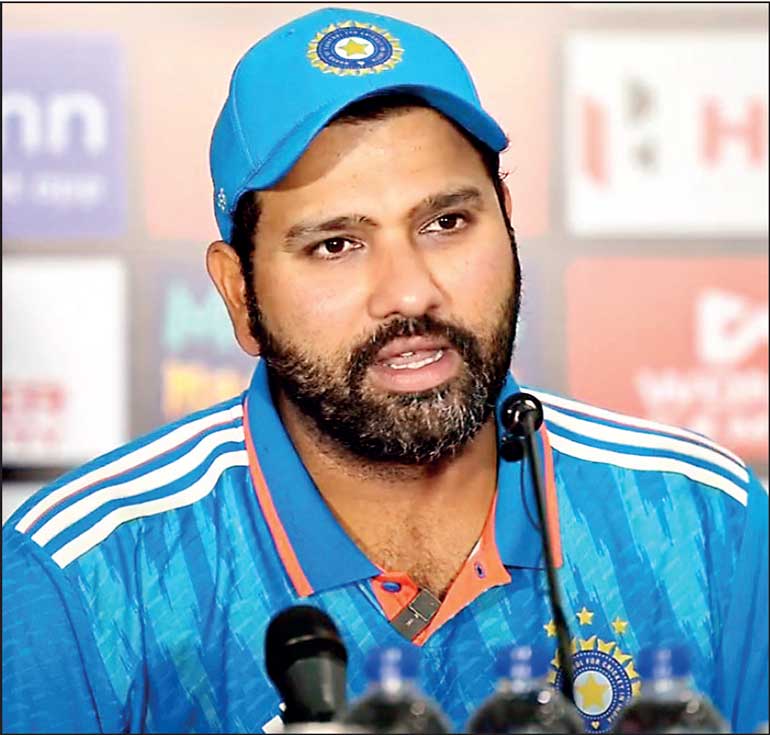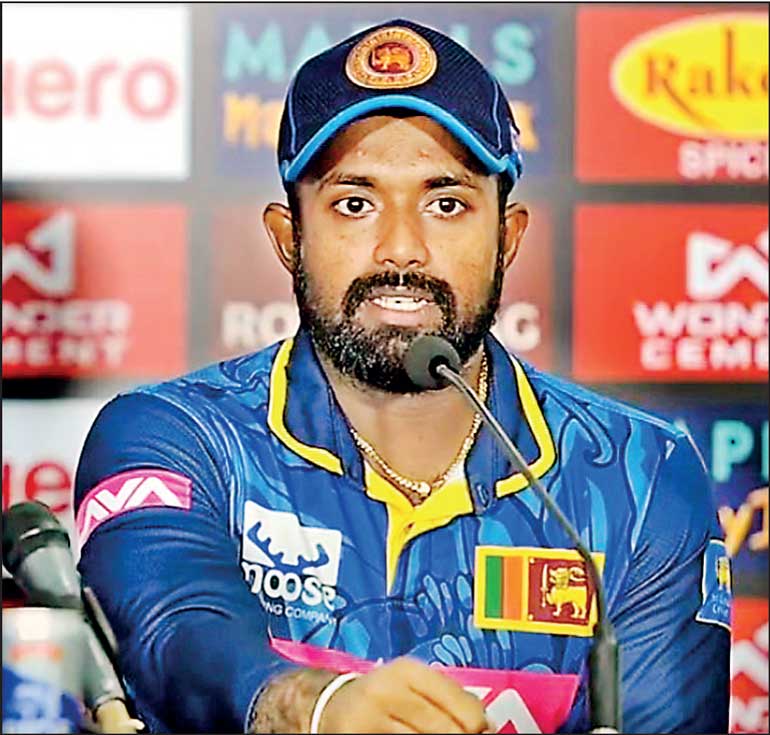Saturday Feb 21, 2026
Saturday Feb 21, 2026
Friday, 9 August 2024 00:30 - - {{hitsCtrl.values.hits}}

India Captain Rohit Sharma

Sri Lanka Captain Charith Asalanka
By Sa’adi Thawfeeq
Rohit Sharma, the Indian skipper said that Sri Lanka were the better of the two teams and it was no shame in admitting that fact.
Sri Lanka beat India 2-0 (1 tie) in the three-match ODI series to record their first-ever win in 27 years over their Asian neighbours who have been dominant in contests between the two sides over the years.
“You’ve got to give credit where it’s due. They played the conditions better than us. They bowled better than us and they batted better than us. We were not good enough. It’s no shame in accepting that,” said Sharma at the post-match press conference after Sri Lanka had won the third and final ODI by 110 runs at the R. Premadasa International Cricket Stadium on Wednesday.
“The entire Sri Lanka unit impressed me. The way they played it looked like a team that wanted to do something special for the country. I have always come across Sri Lankan teams, whenever I have played against them, they play as a unit, and they try and give their best on the field. I take a lot of pride in representing all the boys who are sitting in the dressing room because we played some really good and fascinating cricket over a period of a few years. A series like this, a game like this can happen. A lot of credit to Sri Lanka, they were in the fight throughout and they wanted to make a difference.”
Sharma said that the players in the team had played enough cricket and there was no excuse because they had played on these types of surfaces before.
Comparing his team’s approach to the one adapted by Sri Lanka against the Indian spinners, Sharma said, “I don’t think they did anything specific. They were very consistent with their sweeps, they were taking their chances of playing the sweep shot, and not a lot of runs were scored down the ground. They didn’t make use of their feet as much as we were expecting them to do. It was basically sweeping the ball and making use of the deep square leg and deep mid-wicket fielder. That is something we failed to do as a batting unit.”
“We didn’t play enough sweeps, enough reverse sweeps or paddle. We didn’t use our feet too much, that was the difference. If you look at the partnership between (Kusal) Mendis and (Avishka) Fernando they got a lot of runs square of the wicket which meant that they were using the turn, going down the track, sweeping and making that fielder move left and right. They were very smart in how they batted; we were not smart enough.”
Sri Lanka’s winning Captain Charith Asalanka put down his team’s success to the good environment created in the team by interim Head Coach Sanath Jayasuriya, a former Sri Lankan player and Captain.
“We all know how much Sanath Jayasuriya has done for the country. He shares his experience with us, and players like me and Dunith (Wellalage) he’s especially good, because he’s also a left-hander,” said Asalanka. “He wants to win matches, and he inspires that desire to win games in us as well. He’s created a good environment that’s conducive to us performing well. This is just the start. There’s a long way to go. As a Captain that’s the journey I want to go on with everyone in the team.”
“We tried to give a lot of freedom to our players and to show their talent. We don’t put much pressure on them. We identify what the positives and negatives are, and we back their strength. If they fail, it’s not a problem. If you have that backing you can play against a good team like this. In the T20Is though we lost there were positives in our top order. I knew as a Captain that when we play to our potential, we can compete against the best.”
Having taken over the role as Captain of both white ball teams Asalanka said, “As a Captain, I wanted 15 good individuals. I frequently say that I want good players on the coaching staff as well. It’s not like two or three years ago, right now we’ve got players like Pathum Nissanka, Avishka Fernando, Wella, Wanindu (Hasaranga), and Sadeera (Samarawickrama) who have made the team stable and played more than 40 matches. It’s not like at the start. The more games we play the more experience we get. There are big changes. The top order gave great starts and that’s the biggest change. If you look at our one-day cricket two or three years ago we weren’t getting good starts. As the No. 5 batter, I was coming in at the 10-over mark quite frequently. But now there’s a foundation, and that’s a sign of us maturing.”